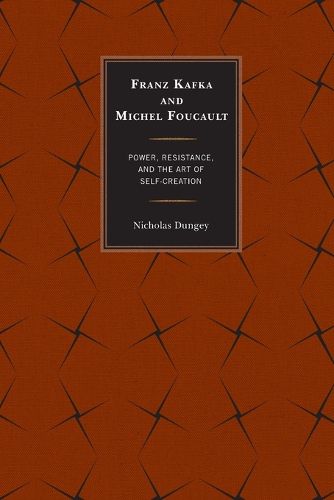Readings Newsletter
Become a Readings Member to make your shopping experience even easier.
Sign in or sign up for free!
You’re not far away from qualifying for FREE standard shipping within Australia
You’ve qualified for FREE standard shipping within Australia
The cart is loading…






With the publication of Michel Foucault’s last essays detailing his account of the aesthetics of existence and a post-metaphysical ethics, we now have an outline for a comprehensive Foucaultian analytical framework. Foucault’s analytical schema is arranged around three interdependent observations. First, subjects are formed through discursive and material force relations that Foucault calls disciplinary power. Second, while individuals inescapably bear the inscription of disciplinary power, there are multiple sites of resistance available to them. And third, the normative purpose of resistance and life is found in the self-conscious pursuit of aesthetic transformation and self-creation-what Foucault calls ethics. For Foucault, philosophy, critique, and writing are agonistic and creative tools in the practice and cultivation of what he calls the ‘art of life.’
In Franz Kafka and Michel Foucault: Power, Resistance, and the Art of Self-Creation, Nicholas Dungey examines Foucault’s holistic project and applies it to a critical interpretation of Kafka’s writings. In Part I, Dungey argues that in Kafka’s, In the Penal Colony, and The Trial, we find evidence of the presence and operation of disciplinary power, strategies, and forms of subjectivity. In the Penal Colony and The Trial exhibit the central themes of Foucault’s dystopian analysis of Enlightenment rationality, subjectivity, and politics. In Part II, Dungey moves from a genealogical analysis of disciplinary power and subjectivity in Kafka’s literature to an examination of Foucault’s account of resistance, the aesthetics of existence, and ethics. Turning to Kafka’s voluminous letters and diary entries, Dungey identifies the way Kafka’s letters and diaries operate as strategies of resistance against disciplinary norms and expectations and ultimately serve as the artistic vehicle through which Kafka pursued a form of aesthetic self-creation he called life as literature.
$9.00 standard shipping within Australia
FREE standard shipping within Australia for orders over $100.00
Express & International shipping calculated at checkout
With the publication of Michel Foucault’s last essays detailing his account of the aesthetics of existence and a post-metaphysical ethics, we now have an outline for a comprehensive Foucaultian analytical framework. Foucault’s analytical schema is arranged around three interdependent observations. First, subjects are formed through discursive and material force relations that Foucault calls disciplinary power. Second, while individuals inescapably bear the inscription of disciplinary power, there are multiple sites of resistance available to them. And third, the normative purpose of resistance and life is found in the self-conscious pursuit of aesthetic transformation and self-creation-what Foucault calls ethics. For Foucault, philosophy, critique, and writing are agonistic and creative tools in the practice and cultivation of what he calls the ‘art of life.’
In Franz Kafka and Michel Foucault: Power, Resistance, and the Art of Self-Creation, Nicholas Dungey examines Foucault’s holistic project and applies it to a critical interpretation of Kafka’s writings. In Part I, Dungey argues that in Kafka’s, In the Penal Colony, and The Trial, we find evidence of the presence and operation of disciplinary power, strategies, and forms of subjectivity. In the Penal Colony and The Trial exhibit the central themes of Foucault’s dystopian analysis of Enlightenment rationality, subjectivity, and politics. In Part II, Dungey moves from a genealogical analysis of disciplinary power and subjectivity in Kafka’s literature to an examination of Foucault’s account of resistance, the aesthetics of existence, and ethics. Turning to Kafka’s voluminous letters and diary entries, Dungey identifies the way Kafka’s letters and diaries operate as strategies of resistance against disciplinary norms and expectations and ultimately serve as the artistic vehicle through which Kafka pursued a form of aesthetic self-creation he called life as literature.